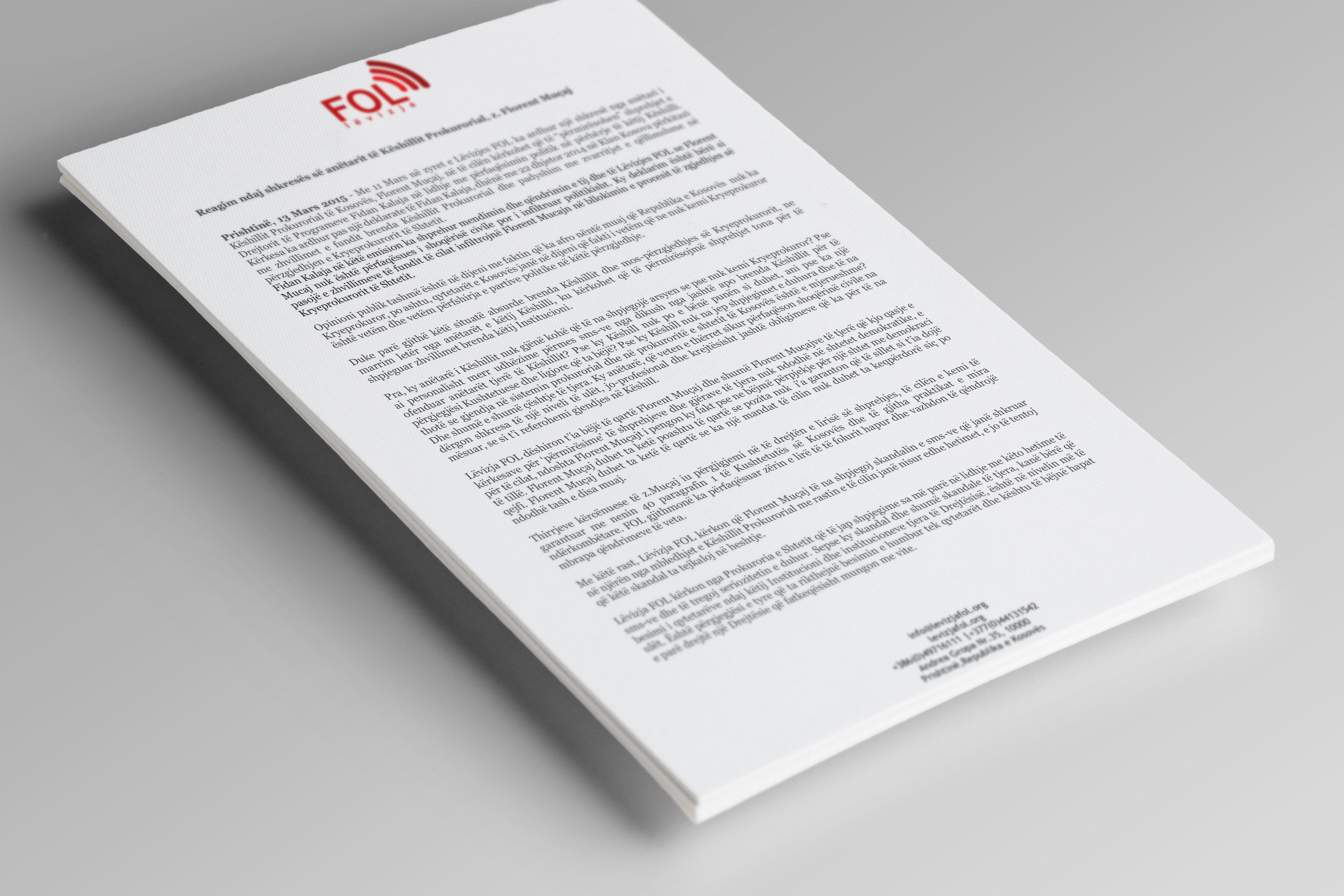Confiscation of Illegal property – where is anti-mafia law?
Confiscation of property obtained through criminal offense presents only one side of the coin in Kosovo’s efforts to fight organized crime and corruption and any other goods that results from them. The other side of the coin has to do with the confiscation of property that is not potentially as a result of a criminal offense or the latter fails to be fully proven. And here is the problem.
Currently, the seizure and confiscation of property in Kosovo is regulated by the Code of Criminal Procedure and the Law on Extended Powers of Seizure of the Property derived from crime. In both these laws, the seizure and confiscation of assets should be done in the context of the commission of a criminal act by which it is obtained that property or other assets. One thing is clear – any criminal offense that generates wealth is punishable and that property is confiscated. However, we have situations where a certain asset can not be justified, on the other hand can not even relate to a specific criminal offense. In this regard, currently, the prosecution authorities and Kosovo courts are limited and may not take any action of seizure and confiscation regarding those assets.
In a debate organized earlier by FOL Movement, the National Coordinator for Fighting Economic Crime in Kosovo presented impressive statistics of seized property – about 30 million euros per year, however, only about half a million of them were confirmed by final decision of the courts. The Coordinator raised the need for increased efficiency of the prosecution and courts about the seizure and confiscation of assets obtained illegally and the need for anti-mafia law.
Untill now, the initiative for drafting the anti-mafia law was not successful. This law basically dealt with unjustified wealth. Anti-mafia law would not necessarily require a charge or criminal proceedings against a person for confiscation of unjustified property. But, there are some considerations about such a law. First, who should bear the burden of proof in the event that a particular asset is seized – the owner of the property or body seeking seizure. Second, is it guaranteed and van be guaranteed the constitutional and legal rights of the parties against arbitrary state interference in private life and property. Third, could anti-mafia law act back in time?
A number of attornies are sayibg that primarily the individuals should have the burden of proof to justify a certain asset whether it is lawfully obtained, on the other hand, yet a great deal of attornies including me say the the body that requires the seizure, in this case the prosecution or other body we must bear the burden of proof to prove that a property was obtained illegally. The importance of this argument lies in the role that the state has in monitoring and fighting crime in any circumstance, including the seizure of property obtained illegally. The state can not transfer this role to individuals and play only a passive role.
Seizure and confiscation of property in each case requires state intervention in private wealth and property of citizens. In the case of criminal offenses such intervention is justified. In the absence of a criminal offense, the interference could jeopardize the constitutional and legal rights of citizens, where the state will have the opportunity to seek seizure of a property grounded on a suspicion about the origin of an asset. In this respect any law that the government will bring, would require the need to exercise caution in establishing a fair balance between the interests of the state and society to fight crime and the goods that are generated by crime, in one hand and constitutional and legal individual rights to use private property freely and without the risk of an arbitrary state interference through unjustified confiscation of property.
Can we draft an anti – mafia law which would allow us to go back in time and to seize assets that have been obtained illegally? No and yes. No, because in principle every law operates looking forward, otherwise violates the principle of legality and legal certainty. Yes, if it is argued that a certain property acquired illegally before 10 or 20 years continues to generate benefits for its owners. But the last argument is difficult to be related to the first argument.
Eventually, the need for anti-mafia law prevails all of the above considerations. They should serve more to make a good law than to refuse to make such a law. On the other hand, the current framework, however, creates a good basis for the responsible authorities to do more in fighting organized crime and corruption and the confiscation of assets that generate these affairs.
[av_heading heading=’This project was funded through a grant of the American Embassy in Prishtina. The opinions, findings, and conclusions or recommendations expressed herein are those of the Author (s) and do not necessarily reflect those of the Department of State’ tag=’h4′ style=” size=” subheading_active=” subheading_size=’15’ padding=’10’ color=” custom_font=”][/av_heading]
